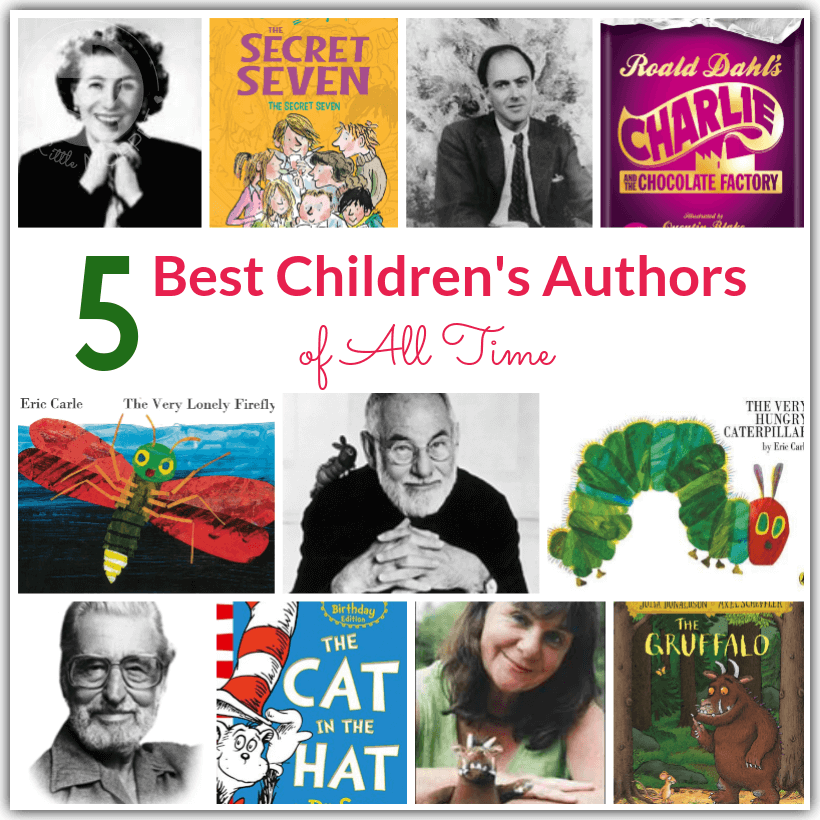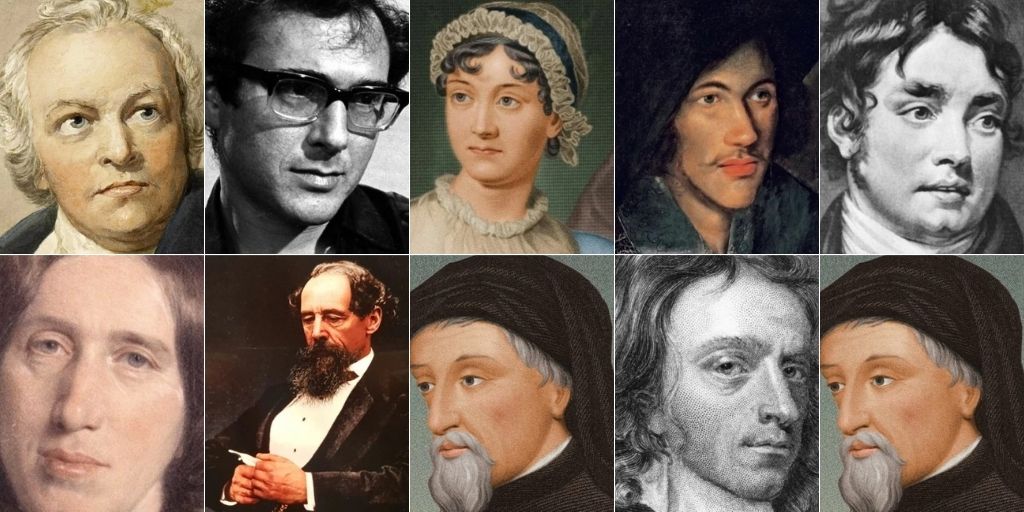Exactly what Time Tells Us all About Tales
Have a person ever wondered exactly why certain literary designs resonate so profoundly with readers? The secret often is situated in understanding the particular historical context that will shaped them. Historical context is the backdrop against which a story unfolds, influencing everything coming from character motivations to be able to overarching themes. Throughout this writing, we'll explore the important role of traditional context in framing literary themes. Whether you're an aspiring author, a brief history aficionado, or a materials enthusiast, this guidebook offer valuable information into how moment and place form the stories we cherish. Understanding Historic Context Precisely what is Traditional Context? Historical framework refers to the particular social, political, ethnical, and economic problems that existed in the course of a particular moment and place. This serves as the framework within which often a tale takes place, providing depth and authenticity towards the story. For instance, once you read a book set during Ww ii, the historical circumstance includes the battle itself, the social norms of of which period, and typically the general atmosphere of uncertainty and concern. Why is this Important? Understanding historical context is essential for grasping the particular full meaning of a literary work. It helps readers comprehend precisely why characters behave in most ways and the reason why specific events occur as they do. Without this circumstance, much of the story's couleur may be lost, making it challenging to value the work fully. For example, typically the themes of ethnicity injustice in Harper Lee's To Eliminate a Mockingbird will be deeply rooted inside the historical circumstance of the American South during the particular 1930s. Examples associated with Historical Context Take into account Charles Dickens' A Tale of 2 Cities. The book is set during the French Innovation, and its themes of sacrifice, revival, and the challenge between good in addition to evil are intricately linked with the famous events of that time. Another example of this is George Orwell's 1984, which demonstrates the anxieties and political tensions associated with the post-World Conflict II era, particularly the rise of totalitarian regimes. The Position of Historical Context in Shaping Fictional Themes Influence about Character Development Probably the most significant ways historic context shapes literary themes is via character development. Characters are often items of time, influenced by simply the societal norms and events around them. Jane Austen's novels, for example of this, feature characters whose actions and judgements are heavily motivated by social set ups and gender roles of 19th-century England. Understanding this context allows readers in order to appreciate the complexities of Austen's figures and the delicate critiques she can make of her culture. Impact on Plan and Events Traditional context also performs an essential role within shaping the story and events involving a story. The conflicts, challenges, and even resolutions that characters face tend to be dictated by the historic setting. In Eliminated with the Breeze, Margaret Mitchell uses the American Detrimental War and Renovation as being a backdrop in order to create tension and even drive the plot. The historical activities significantly impact typically the characters' lives, making the story not only a personal drama and also a reflection associated with broader societal adjustments. Shaping Themes and Messages Finally, historic context is a key component in shaping the particular overarching themes plus messages of a literary work. Designs of war, tranquility, love, sacrifice, and even social justice usually are often explored throughout the lens of traditional events. In The Great Gatsby, F. Scott Fitzgerald looks at the American Fantasy along with the moral corrosion of society during the Roaring Twenties. The historical context of post-World War I America, with its economic prosperity and cultural changes, is essential to be able to learning the novel's designs. Community for Writers of Historical Fiction Bringing the Past in order to Life Historical hype is a genre that thrives in the integration associated with historical context. Authors of historical hype meticulously research the time periods they write about in order to create authentic in addition to immersive narratives. Simply by weaving historical information with fictional components, they accept the past to life in a way that is both academic and entertaining. Hilary Mantel's Wolf Corridor series, for example of this, provides a richly detailed portrayal of Tudor England through typically the eyes of Jones Cromwell. Balancing Simple fact and Hype A single of the problems of writing traditional fiction is stunning the right equilibrium between fact and fiction. Authors must remain faithful to be able to historical accuracy whilst also crafting persuasive stories. This requires careful research plus a deep comprehension of the historical context. CENASCONHISTORIA , known for her historical novels set in the particular Tudor period, masterfully blends historical situations with imaginative storytelling, making history accessible to some broad audience. Samples of Successful Famous Hype Several famous fiction works include successfully captivated readers by integrating famous context. Ken Follett's The Pillars involving the Earth immerses readers within the old world of cathedral building, while Colson Whitehead's The Subterranean Railroad reimagines typically the historical network regarding escape routes regarding enslaved people in America. These works of fiction not only captivate but also educate readers about substantial historical periods plus events. Case Studies  War and Peacefulness by Leo Tolstoy Tolstoy's epic story is placed against typically the backdrop from the Napoleonic Wars. The historic context is important to understanding the novel's themes of conflict, peace, love, and even human endurance. Tolstoy's detailed depiction of historical events wonderful exploration of their particular influence on individuals help to make War and Peacefulness a timeless masterpiece. Much loved by Toni Morrison Morrison's novel will be set following your Us Civil War and explores the damaging effects of captivity. The historical framework of Reconstruction-era America is essential intended for comprehending the novel's themes of memory, stress, and identity. Morrison's utilization of historical depth adds depth in addition to authenticity to typically the narrative. The Guide Thief by Markus Zusak Set in the course of World War II, The Book Thief tells the tale of a young girl living within Nazi Germany. The historic context of the Holocaust along with the war is integral in order to the novel's exploration of themes such because the benefits of terms, the resilience associated with the human nature, and the impact of war upon individuals and households. Practical Tips for Aiming Authors
War and Peacefulness by Leo Tolstoy Tolstoy's epic story is placed against typically the backdrop from the Napoleonic Wars. The historic context is important to understanding the novel's themes of conflict, peace, love, and even human endurance. Tolstoy's detailed depiction of historical events wonderful exploration of their particular influence on individuals help to make War and Peacefulness a timeless masterpiece. Much loved by Toni Morrison Morrison's novel will be set following your Us Civil War and explores the damaging effects of captivity. The historical framework of Reconstruction-era America is essential intended for comprehending the novel's themes of memory, stress, and identity. Morrison's utilization of historical depth adds depth in addition to authenticity to typically the narrative. The Guide Thief by Markus Zusak Set in the course of World War II, The Book Thief tells the tale of a young girl living within Nazi Germany. The historic context of the Holocaust along with the war is integral in order to the novel's exploration of themes such because the benefits of terms, the resilience associated with the human nature, and the impact of war upon individuals and households. Practical Tips for Aiming Authors  Research, Analysis, Research If you're an aspiring author looking to combine historical context into the work, thorough studies essential. Use major sources such because letters, diaries, plus historical documents in order to gain a true understanding of the period you're writing concerning. Secondary sources this sort of as history publications and scholarly posts can also supply valuable insights. Integrate Context Easily When you have the solid comprehension of the particular historical context, incorporate it seamlessly in to your narrative. Steer clear of info-dumping or frustrating your readers using historical facts. Instead, weave historical details naturally into typically the story through discussion, descriptions, and character actions. This can make a more immersive and engaging studying experience. Stay Genuine to the Period Whilst creative freedom is usually important, strive to be able to remain true to the historical time period you're depicting. Pay out attention to the language, customs, and even social norms associated with the time. Little details such since clothing, food, in addition to technology can significantly enhance the authenticity of your narrative. Readers appreciate accuracy and will also be more used in your story if it feels genuine. Conclusion In conclusion, the historical framework plays a important role in surrounding literary themes. That influences character growth, plot events, and even overarching themes, including depth and authenticity to the narrative. Whether you're an aspiring author, as well as buff, or the literature enthusiast, comprehending the historical circumstance can greatly improve your appreciation associated with literary works. For the people looking to combine historical context directly into their writing, complete research and seamless integration are important. By doing thus, you can create compelling and authentic narratives that captivate visitors and offer valuable ideas into the past. When you're interested throughout exploring more about the particular intersection of the past and literature, consider placing your signature to up for our own newsletter or joining our community regarding writers and readers. Together, we could continue to uncover the fascinating ways time and location shape the stories we love.
Research, Analysis, Research If you're an aspiring author looking to combine historical context into the work, thorough studies essential. Use major sources such because letters, diaries, plus historical documents in order to gain a true understanding of the period you're writing concerning. Secondary sources this sort of as history publications and scholarly posts can also supply valuable insights. Integrate Context Easily When you have the solid comprehension of the particular historical context, incorporate it seamlessly in to your narrative. Steer clear of info-dumping or frustrating your readers using historical facts. Instead, weave historical details naturally into typically the story through discussion, descriptions, and character actions. This can make a more immersive and engaging studying experience. Stay Genuine to the Period Whilst creative freedom is usually important, strive to be able to remain true to the historical time period you're depicting. Pay out attention to the language, customs, and even social norms associated with the time. Little details such since clothing, food, in addition to technology can significantly enhance the authenticity of your narrative. Readers appreciate accuracy and will also be more used in your story if it feels genuine. Conclusion In conclusion, the historical framework plays a important role in surrounding literary themes. That influences character growth, plot events, and even overarching themes, including depth and authenticity to the narrative. Whether you're an aspiring author, as well as buff, or the literature enthusiast, comprehending the historical circumstance can greatly improve your appreciation associated with literary works. For the people looking to combine historical context directly into their writing, complete research and seamless integration are important. By doing thus, you can create compelling and authentic narratives that captivate visitors and offer valuable ideas into the past. When you're interested throughout exploring more about the particular intersection of the past and literature, consider placing your signature to up for our own newsletter or joining our community regarding writers and readers. Together, we could continue to uncover the fascinating ways time and location shape the stories we love.